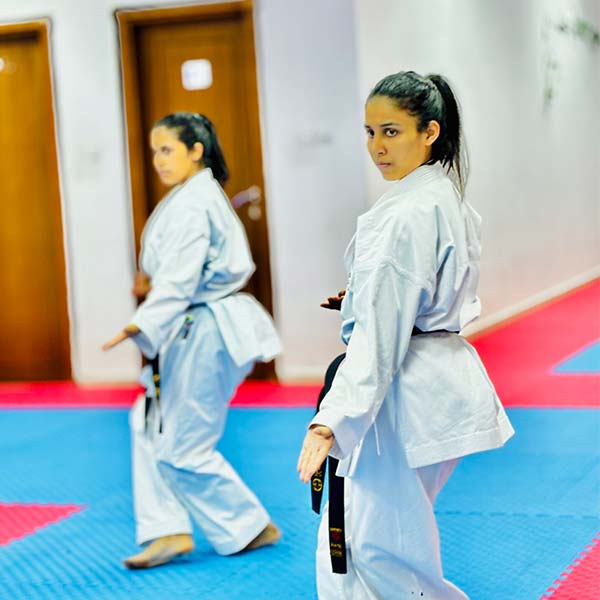
Karate, a martial art renowned for its grace, power, and discipline, has deep roots that stretch back centuries. In this journey through time, we will delve into the rich history and philosophy of karate, uncovering the ancient traditions and guiding principles that continue to shape this dynamic practice today.
History of Karate: The origins of karate can be traced back to the island of Okinawa, a small but significant landmass situated between Japan and China. It was here, amidst a backdrop of political turmoil and cultural exchange, that the seeds of karate were sown.
In the early days, karate was known by various names, including “te” (meaning “hand”) and “tode” (meaning “Chinese hand”), reflecting its roots in Chinese martial arts. Over time,
these indigenous fighting systems began to evolve and adapt, blending with influences from Chinese boxing, indigenous Okinawan martial arts, and even Japanese martial traditions. One of the key figures in the development of karate was Master Gichin Funakoshi, often referred to as the father of modern karate. In the early 20th century, Funakoshi introduced karate to mainland Japan, where it gained popularity and began to spread rapidly throughout the country and eventually worldwide.
Philosophy of Karate: At its core, karate is more than just a physical practice – it is a way of life, a philosophy, a journey of self-discovery and personal transformation. Central to the philosophy of karate are the principles of discipline, respect, humility, and perseverance.
Discipline: Karate demands discipline – both in training and in daily life. Through rigorous practice and unwavering dedication, practitioners learn to cultivate self-control, focus, and mental fortitude.
Respect: Respect is a cornerstone of karate etiquette, encompassing respect for oneself, for others, and for the art itself. In the dojo, students bow to their instructors and fellow practitioners as a sign of reverence and humility.
Humility is essential in karate, as it allows practitioners to remain open-minded, receptive to feedback, and;willing to learn from others. No matter how advanced one becomes, there is always room for improvement and growth.
Perseverance: Perseverance is the key to success in karate. It is through perseverance that practitioners overcome challenges, push past obstacles, and ultimately reach their full potential.
Modern Karate: Today, karate has evolved into a global phenomenon, practiced by millions of people around the world. It has been codified into various styles and systems, each with its own unique techniques, training methods, and philosophies. In Dubai, the Japan Karate Association UAE and its affiliated club, JKA Shotokan Karate Club Dubai, stand as beacons of karate excellence, carrying on the traditions established by Master Funakoshi and other pioneers of the art. Located at 79WM+X3G Ahli House-C in Al Nahda 2, Dubai, these institutions offer expert instruction, state-of-the-art facilities, and a supportive community of fellow practitioners.
Conclusion: As we conclude our exploration of the history and philosophy of karate, we are reminded of the profound impact that this ancient martial art has had on the lives of countless individuals throughout history. From its humble origins on the island of Okinawa to its global presence today, karate continues to inspire, empower, and uplift all who dare to walk its path. Whether you are a seasoned practitioner or a newcomer to the art, we invite you to join us at JKA Shotokan Karate Club, Dubai, part of the esteemed Japan Karate Association UAE. Contact us at +971 529564449 to learn more about our classes, programs, and how you can become a part of our karate community. Together, let us continue to explore the roots of karate and honor the timeless principles that have guided its practitioners for centuries.
